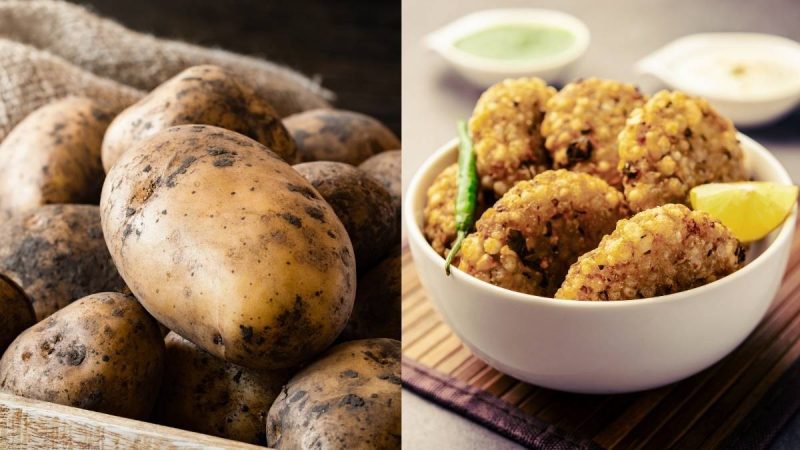Navratri is celebrated with full fervour across India, with people playing garba and dandiya, wearing traditional clothes, and enjoying festive feasts. Many devotees also observe fasting during this festive season. They avoid eating regular grains like wheat and rice, pulses, and non-vegetarian food. However, they do eat ‘vrat-friendly’ food. Recently, a nutritionist highlighted five common mistakes people make during Navratri fasting that could affect their health. Keep reading to know what they are.
What Is Navratri?
Navratri is a Hindu festival of nine nights where devotees worship and seek blessings from Goddess Durga. During these days, we worship nine different forms of the Goddess. On Day 1, devotees worship Shailaputri, symbolising strength and new beginnings. Day 2 is dedicated to Brahmacharini, representing discipline and focus. Chandraghanta, worshipped on Day 3, teaches bravery, while Kushmanda on Day 4 inspires creativity and positivity. On Day 5, devotees seek the blessings of Skandamata, who embodies care and compassion.
Moving further on Day 6, people pray to Katyayani, who inspires courage and honesty. Kalaratri is worshipped on Day 7 and shows the power of resilience. Day 8 is dedicated to Mahagauri, symbolising forgiveness and peace. Lastly, on Day 9, devotees worship Siddhidatri, who represents wisdom and learning.
Also Read: 10 Best Dandiya Nights In The Middle East This Navratri That Bring The Festive Spirit Alive
5 Common Mistakes To Avoid During Navratri Fasting
As many people observe fasting during Navratri, nutritionist Kiran Kukreja (@nuttyovernutritionn) took to Instagram to share five common mistakes everyone should avoid for a healthy fast this festive season –
1. Too much sabudana
Sabudana is made of starch, and that’s why the nutritionist warns that eating it in large quantities can spike blood sugar and make you feel tired quickly.
2. Skipping protein
When fasting, people often miss out on protein. Most vrat foods are high in carbs and fats, which can leave you feeling low on energy. Try adding protein-rich fasting foods like nuts, dairy, or seeds to your meals.
3. Assuming packaged vrat snacks are healthy
Many packaged snacks are labelled “vrat-friendly,” but that doesn’t always mean they’re healthy. These items are deep-fried in low-quality oils, which can be harmful.
4. Using too much potatoes
As potatoes are allowed to be eaten during Navratri fast, people often add them to almost every suitable dish. However, eating too many potatoes can add a lot of starch to your diet, which can again raise your blood sugar levels and cause energy crashes.
5. Eating same dishes
During fasting, it’s easy to rely on two or three dishes every day, but doing this can create nutritional gaps and increase cravings.
We hope this information was helpful to you all and if you’re you fasting this Navratri, please take care and eat healthy!
Also Read: 9 Restaurants For Gujarati Food In Dubai This Navratri For Festive Feels Away From Home
Cover Image Courtesy: Canva Pro/ Cotors Lurie’s & Canva Pro/ ArxOnt

